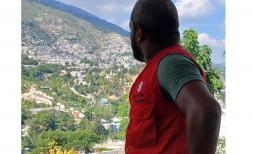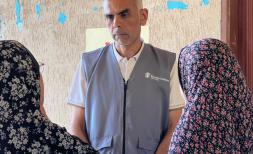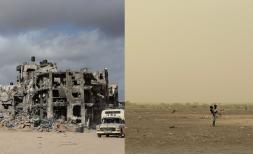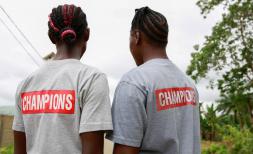Coronavirus – A Threat To Child Survival
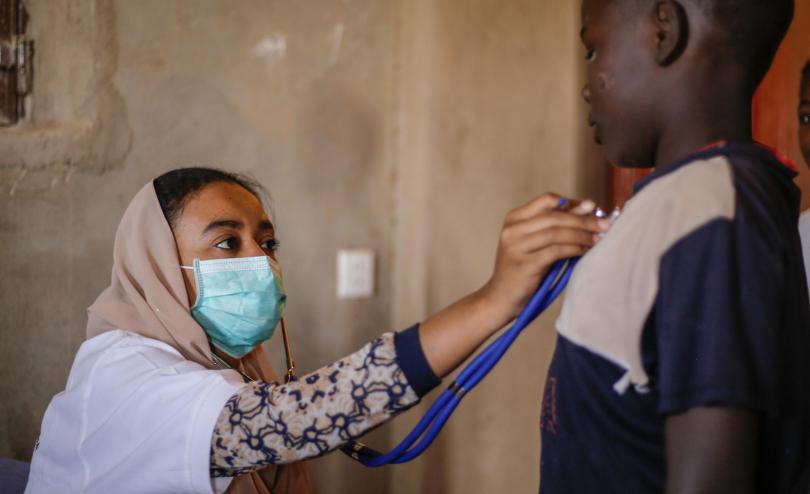
Disease mitigation is a key pillar of Save the Children’s Agenda for Action to #ProtectAGeneration throughout the coronavirus pandemic.
The COVID-19 pandemic has now hit almost every country around the world and its impacts risk unravelling years of development gains and progress on child survival.
Every year, 5.3 million children under the age of five currently die from preventable causes. At least half of the world’s population already lack access to basic health services and around 100 million are still pushed into extreme poverty paying for health care[1]. The impacts of coronavirus will inevitably exacerbate these figures, with the most vulnerable and marginalised children likely to be worst impacted.
People face direct health risks from contracting COVID-19. But there are many other secondary threats to people’s health and survival. Overstretched health systems, supply chains disruptions and potential shortages of medicines, vaccines and other commodities will all bring further risks to children and their communities if essential services can no longer be delivered.
Increased strain on health systems and disruptions to routine healthcare due to coronavirus could lead to over a million additional children dying over the next six months in low- and middle-income countries, according to recent projections[2]. Meanwhile delayed action on prevention and mitigation could cost over three million lives in South Asia and Sub-Saharan Africa alone.[3]
Countries must act swiftly to reduce the transmission of the virus and take early and decisive action to strengthen health systems so that people can be tested and cared for, while continuing to receive essential care vital to child survival. Children must be able to access health and nutrition services, free at point of use, as part of Universal Health Coverage and strong primary health care.
We must prevent children from unnecessarily dying and halt backtracking on progress towards achieving the Sustainable Development Goal of ending preventable child deaths by 2030. Save the Children is calling for the following immediate actions:
- We urgently need a well-resourced, comprehensive and coordinated global response across the UN system, and other international and regional organisations, with WHO leading on the public health response.
This must support national-led responses to slow the spread and mitigate against the worst impacts of COVID-19, through strong and resilient health systems. Global coordination must ensure that all countries have necessary capacity for testing; protective equipment and supplies; financing to strengthen public health and nutrition systems (especially primary health care), including a strong frontline health workforce, mental health support, and water and sanitation for facilities; while engaging civil society, including children. - Donor governments must commit resources towards the at least $8 billion in international funding needed to support the COVID-19 health response.
Funding should be channelled through WHO and multilateral funds to support the immediate public health response, prioritising weak health systems in the poorest countries. Wider investments in health and nutrition systems must continue to be a priority, including as part of Gavi’s replenishment and the Nutrition for Growth Summit. - Investment from donors, development partners and national governments must strengthen public health and nutrition systems to be able to respond, including a strong health workforce, especially in the poorest countries and in those with fragile contexts and limited capacity to respond. This is critical to prepare and respond to the virus, while ensuring essential routine services continue to be delivered – e.g. maternal, newborn, child, adolescent and sexual and reproductive health services, immunisation and infant and young child feeding. This is vital to maternal and child survival and to avoid outbreaks from other diseases.
- We need action to make public and private health and nutrition services available free at the point of use, at least for vulnerable children and families and for the duration of the crisis. Other financial and non-financial barriers to accessing services must also be removed. National governments have a core responsibility to make this happen, with donors and development partners championing and supporting efforts.
- There must be sufficient investment in the development of vaccines and treatments for COVID-19 and guarantees for equitable access.
When these products are available, they must be affordable for countries, particularly for poorer countries. There must also be global guarantees so that these countries get their fair and needed share of vaccines and treatments and that they are not hoarded by richer countries. All actors must commit to ensuring this happens so that where you live does not determine your chance of being protected or treated.
The coronavirus pandemic poses a serious threat to progress for children. The poorest, most marginalised and vulnerable children will be hardest hit. It is a global threat that demands a coordinated global response, with crucial support for the poorest countries. We must act now to #ProtectAGeneration and ensure every child’s right to survive and thrive.
All over the world, Save the Children is rapidly adapting our existing work whilst preparing for outbreaks of coronavirus in countries with limited capacity to respond.
Find out more about Save the Children’s coronavirus response.
